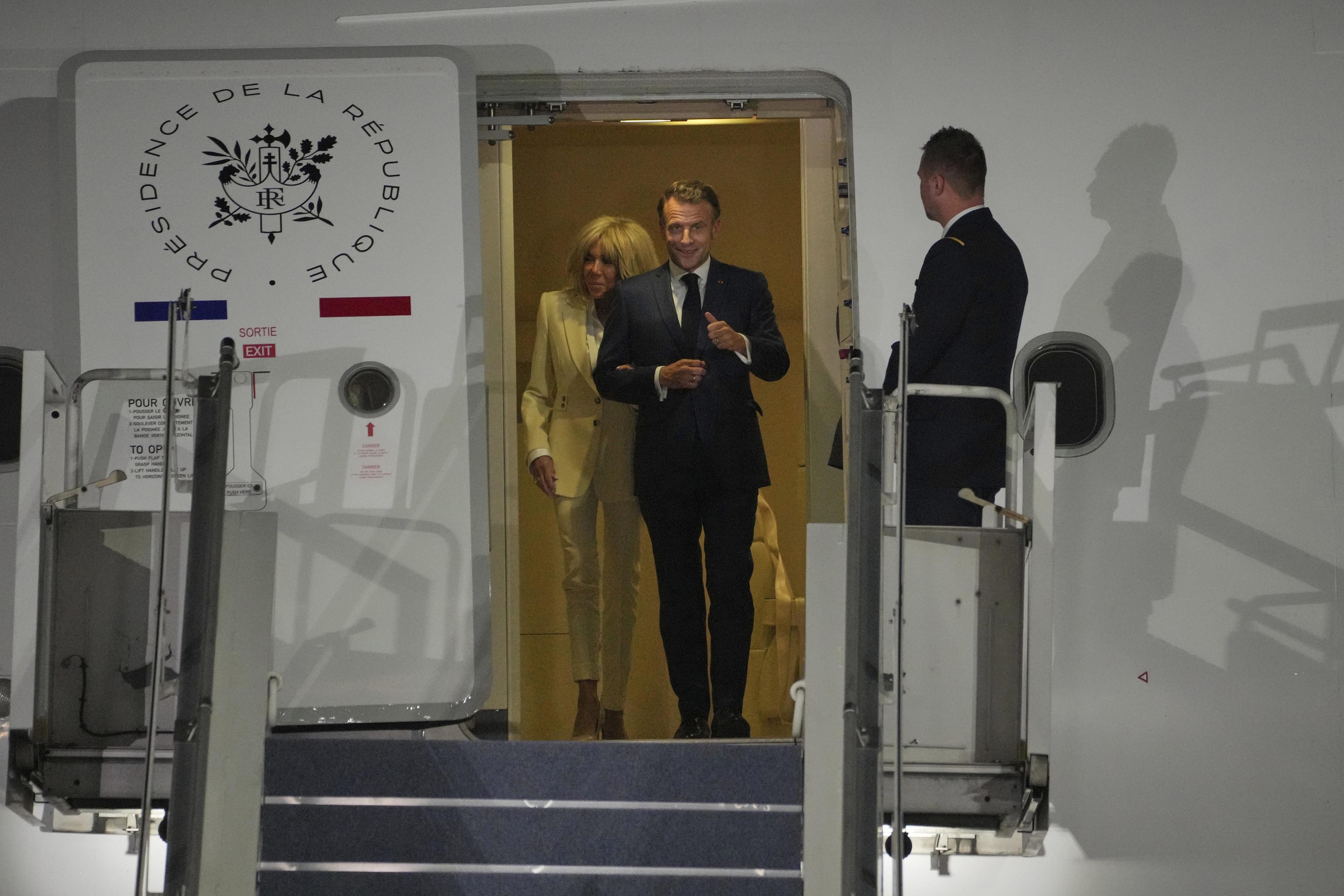A day after the now famous "slap" by Brigitte aboard the presidential Airbus, Emmanuel Macron tried to regain composure with a speech against "the world's superpowers that do not respect international law and do not want peace." As an alternative, during one of his speeches in Hanoi, he proposed a third way for Southeast Asian countries, based on "cooperation, sovereignty, and the integrity of peoples, and respect for the rule of law."
That was the message for his six-day trip to Vietnam, Indonesia, and Singapore: to promote his "Indo-Pacific strategy" and seal economic agreements such as the thirteen signed with the former French colony in nuclear energy, defense, technology, and transportation.
However, the unexpected happened: shortly after landing in Hanoi, as the presidential Airbus opened its door, the president seemed ready to disembark when he was suddenly struck in the face by two slaps (one covering his mouth) from a woman dressed in red, who turned out to be his wife Brigitte.
The scene was captured by an AP camera and instantly went viral on social media. Macron's casual greeting as if nothing had happened when he noticed the cameras worsened the situation. As did the gesture of offering his arm to his wife to descend the plane's stairs, which she ignored, visibly upset and looking down.
Speculations about the state of their marriage, after 17 years, soared while serious media outlets were unsure how to interpret the situation, and the Elysee Palace took time to respond. One of the first political reactions came from Moscow: the Foreign Affairs spokesperson Maria Zakharova was quick to label Brigitte's action as "a perfect hook."
"Did the first lady intend to encourage her husband with a gentle pat on his cheek, or did she miscalculate her strength?" Zakharova wrote on her Telegram account. "Did she try to fix his shirt collar and end up hitting his beloved face? Here's a hint: maybe it was 'the Kremlin's hand'."
Hours after the incident, and seeing the video go viral in France, Macron himself was forced to intervene and remind how previous videos had mistakenly interpreted what happened: "People may have thought I shared a bag of cocaine, struggled with the Turkish president, or am now having a domestic quarrel with my wife. None of this is true. Everyone needs to calm down."
"I was joking with my wife, but it has turned into a sort of geopolitical catastrophe," was his explanation after the incident. An Elysee spokesperson continued with the same narrative: "It was a moment when the president and his wife were unwinding and joking one last time before starting the trip. It was a moment of complicity. That was all it took to give ammunition to conspiracy theorists."
The trip to Hanoi was jinxed from the start, despite the French president's attempt to change course with his peculiar diatribe against superpowers during his visit to the University of Science and Technology in Hanoi: "The conflict between China and the United States is a geopolitical fact that casts a shadow of confrontation extending beyond this region."
During his visit to Vietnam, Macron warned against the "return of power politics and intimidation" and offered France (and by extension the European Union) as an alternative to the Trump Administration's threat to break "international trade rules" and territorial disputes with Beijing in the South China Sea.
Before meeting with Vietnamese President Luon Cuong, Macron paid tribute to those who died in the Indochina War fighting for independence from France. The French president also met with the General Secretary of the Communist Party, To Lam, whom he had already received in Paris in October.
It is unknown if the French president raised concerns about the growing political repression in Vietnam during his visit. Human Rights Watch urged Macron in a letter to pressure the Vietnamese government for "the release of all those detained for exercising their rights to freedom of expression, association, religion, and assembly."
